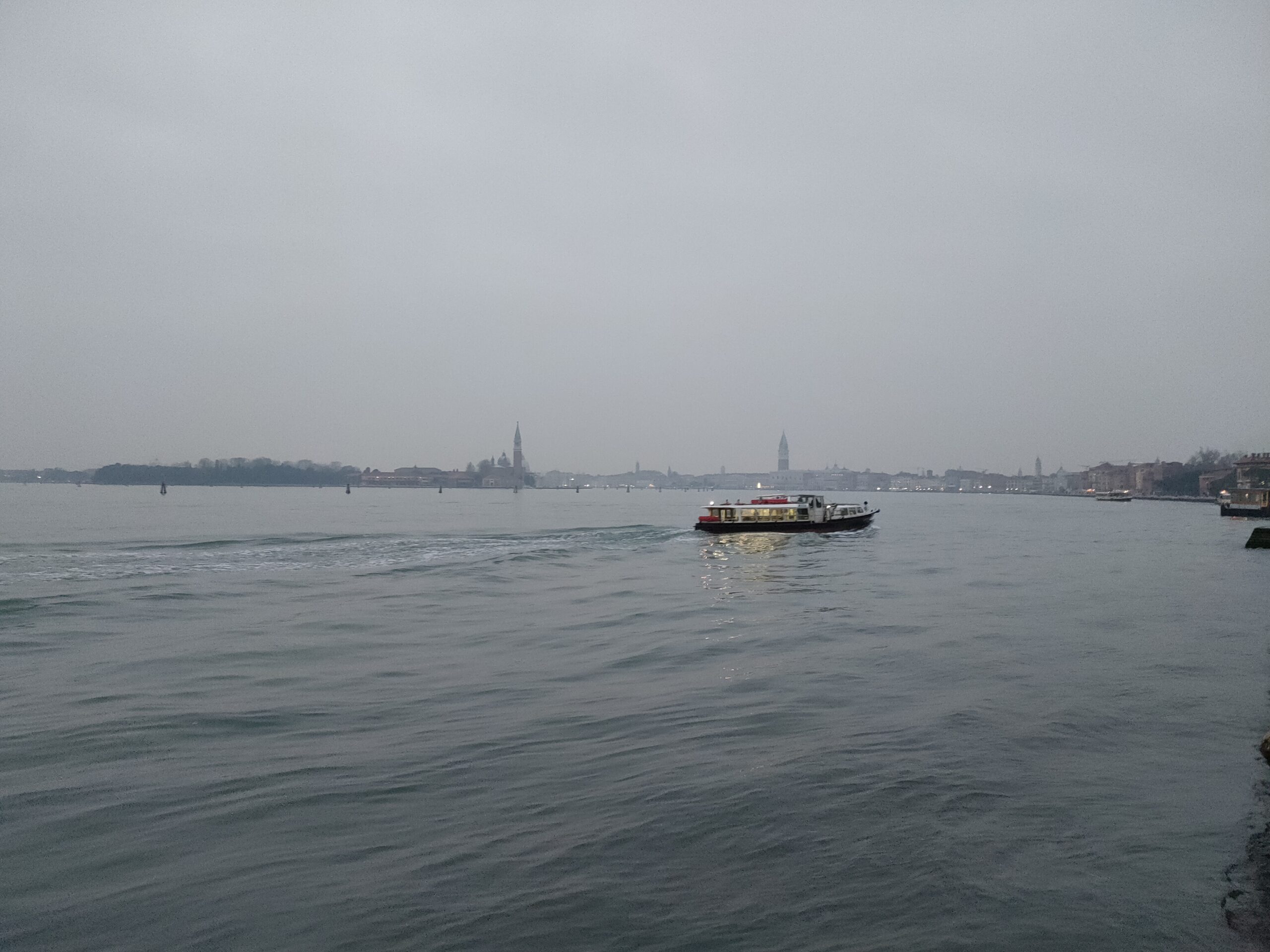
Solstizio d’inverno
Domani 21 dicembre ci sarà il solstizio d’inverno, cari amici. Quella di oggi è la notte più lunga, la vera mezzanotte dell’anno come ha scritto nel 1611 il poeta inglese John Donne. Vi ricopio qui sotto, dal sito poetryfoundation.org, il testo competo di quella celeberrima e bellissima poesia, e prima ancora metto la traduzione italiana delle prime due strofe, sperando che inducano molti ad andare a leggere l’originale (Ma siccome so che pochi lo faranno, vi metto intento la traduzione di quattro versi dall’ultima strofe:
a quest’ora è passato in Capricorno
per succhiarne voluttà nuova e donarla a voi,
o voi tutti, godetevi l’estate.
Intanto da noi a Venezia il Cielo ha concesso tre bellissime giornate di sole dicembrino, che io personalmente ho celebrato andando in giro per i rii e per la laguna sulla mia barchetta Schia. Questa mattina c’era un inizio di nebbietta, che forse si puo intravvedere nella foto del Bacino che metto qui sopra.
NOTTURNO SOPRA IL GIORNO DI SANTA LUCIA,
CHE È IL PIÙ BREVE DELL’ANNO
Questa è la mezzanotte dell’anno e lo è del giorno
di Lucia, che per sole sette ore
solleva la sua maschera.
Il sole è esausto e ora le sue fiasche
spremono tenui sprazzi, nessun raggio costante.
Tutta la linfa del mondo è caduta.
L’universale balsamo bevve la terra idropica;
là, quasi a piè del letto, s’è ritratta la vita
morta e interrata. Eppure tutto ciò sembra ridere
appetto a me che sono il suo epitaffio.
Dunque studiatemi, voi che sarete amanti
in altro mondo, un’altra primavera:
sono ogni cosa morta onde operò l’amore
nuova alchimia. Perché una quintessenza
distillò la sua arte anche dal nulla,
da opache privazioni e da scarne vuotezze.
Mi distrusse. E ora mi rigenerano
assenza, buio, morte, le cose che non sono.